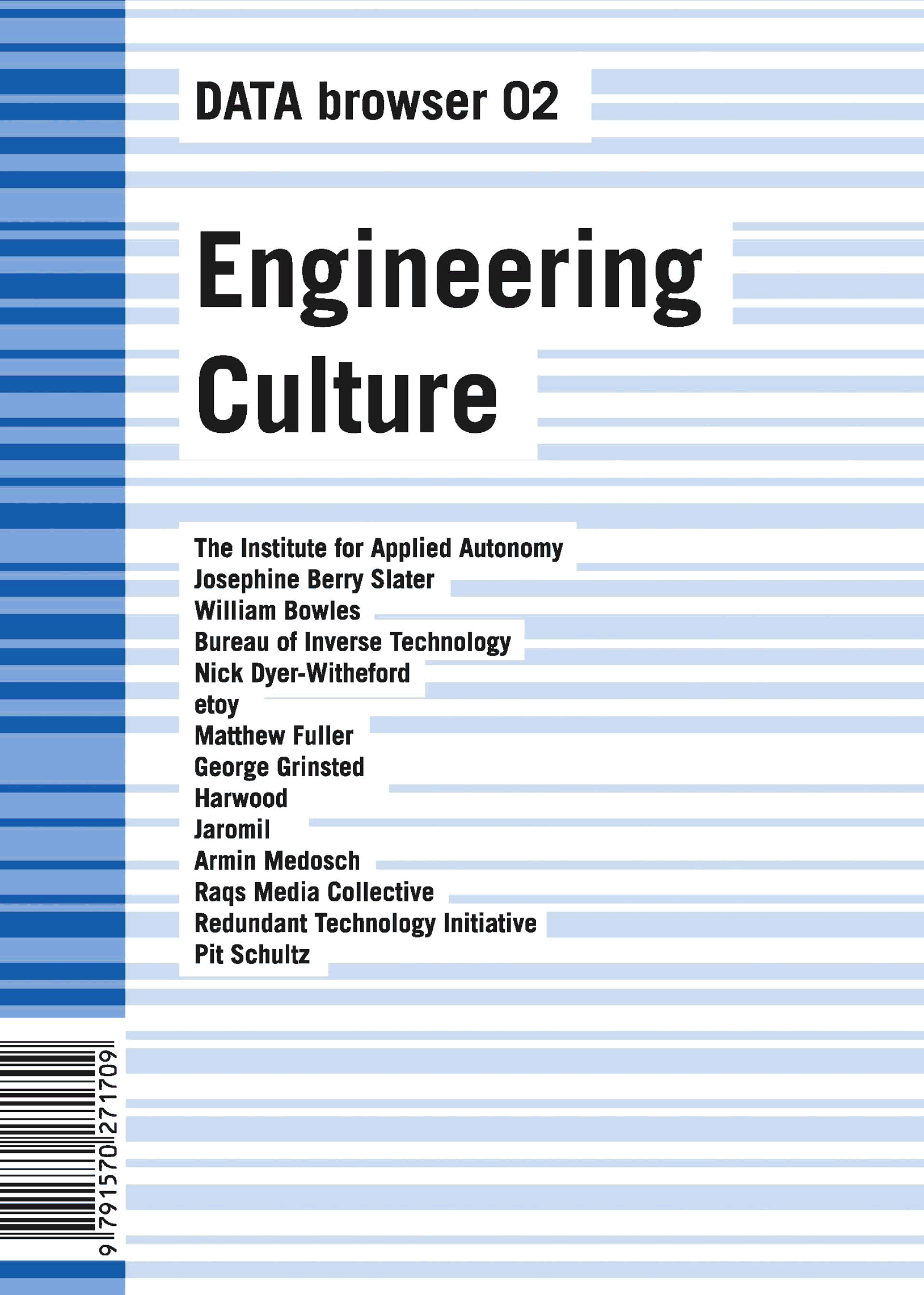Viktor Šik: Umění 2.0 – umělecká tvorba v kontextu sociální sítě (2008) [Czech]
Filed under thesis | Tags: · authorship, internet, mashup, new media art, web 2.0, web art
Cílem této práce je nalézt a popsat umění v prostředí internetových služeb označovaných pojmem web 2.0. V úvodu budou vedle sebe postaveny protikladné názory ohledně tohoto nového fenoménu související především s kulturou a uměleckou kreativitou jako takovou. Za úkol si tato práce také klade zjistit, jaké postavení umělci v prostředí webu 2.0 zaujímají. Práce se přitom dělí na dva okruhy: První z nich prozkoumává služby sociálních sítí zabývající se samotným uměním a poskytující prostor především amatérským, ale i profesionálním umělcům. Opačný pohled zaujímá druhý okruh, který hledá umělecká díla využívající nástrojů a dat sociálních sítí. Jde přitom jak o díla umístěná přímo v prostředí webu, tak i o galerijní instalace. Výsledkem je zmapování nejzajímavější a nejpřínosnější umělecké tvorby.
Klíčová slova
web 2.0, umění, nová média, umění nových médií, internet, sociální síť, mashup, autor, umělecká kreativita, kyberkultura, art, new media, social network, cyberculture, author, artistic creativity
Bakalářská diplomová práce
Masarykova univerzita, Filozofická fakulta, Obecná teorie a dějiny umění a kultury/Teorie interaktivních médií
Vedoucí práce: Mgr. Jana Horáková, Ph.D.
Brno: FF MU, 2008
Art 2.0 – Artistic Creativity in a Context of Social Network
This piece of work aims to find and describe the art in the internet, more specifically in the web 2.0 environment. Firstly, contradictory opinions regarding this new phenomenon related mostly to culture and artistic creativity are laid and compared. Secondly, the goal is to find out the status that web 2.0 artists adopt. This piece of work divides into two parts: The first part explores services of social networks which provide space for either amateur and professional artists. Antagonistic view is given by the second part where it is searched for artistic masterpieces created using tools and data provided by the social networks. Both web presented pieces and gallery installations are considered. A map of the most interesting and contributing art work will become the final result of this piece of work.
Andrej Chudý: Vplyv elektronickej komunikácie na súčasné zmeny v chápaní a zmysle autorstva (2008) [Slovak]
Filed under thesis | Tags: · authorship, commons, copyright, creative commons, electronic communication, interactivity, network society, remediation
Práca načrtáva spoločenské zmeny, ktoré vedú od hierarchických usporiadaní k sieťovým a rozberá akým spôsobom v tomto prostredí umožňuje elektronická komunikácia remediáciu tradičných médií.
Predstavuje chronológiu koncepcií autorstva v západnej kultúre od antiky po súčasnosť. Bližšie skúma význam Múz v antike i stredoveku, anonymitu stredovekých autorov, vzťah orálneho a písaného. Prechádza od vplyvu kníhtlače k vznikajúcej autorskej profesii a súvisiacej koncepcii romantického autora (autor ako génius). Nahliada na literárne a filozofické chápania autorstva v 20. storočí a všíma si aspekty elektronickej kultúry vplývajúce na autorstvo, písanie v hypertextoch. Venuje sa tiež histórii autorského práva a popisuje iniciatívu Creative Commons ako alternatívu k tradičnému autorskému právu.
Analyzuje akú povahu nadobúda autorstvo v prostredí spoločenských médií (blogy, wiki, spoločenské siete) a ukazuje aspekty distribučných modelov, ktoré si potrebuje autor v elektronickom prostredí osvojiť.
Diplomová práca
Univerzita Komenského v Bratislave. Filozofická fakulta; Katedra knižničnej a informačnej vedy
Školiteľ: PhDr. Pavol Rankov, PhD
Bratislava: FiF UK, 2008.
Electronic communication and current changes in the understanding of the notion of authorship
The work outlines the social changes, reaching from the hierarchical organization to the network society, as well as analyses the remediation of the traditional media in the network environment. In the work, there is presented the chronology of the conceptions of authorship in the western culture from the Ancient Period until present.
More info (author)
Comment (0)Geoff Cox, Joasia Krysa (eds.): Engineering Culture: On ‘The Author as (Digital) Producer’ (2005)
Filed under book | Tags: · authorship, digital culture, engineering, production

“Social change does not simply result from resistance to the existing set of conditions but from adapting and transforming the technical apparatus itself. Walter Benjamin in his essay ‘The Author as Producer’, written in 1934, recommends that the ‘cultural producer’ intervene in the production process in the manner of an engineer. The term ‘engineer’ is to be taken broadly to refer to technical and cultural activity, through the application of knowledge for the management, control and use of power. To act as an engineer in this sense, is to use power productively to bring about change and for public utility. This collection of essays and examples of contemporary cultural practices asks if this general line of thinking retains relevance for cultural production at this point in time – when activities of production, consumption and circulation operate through complex global networks served by information technologies.”
Contributors: The Institute for Applied Autonomy | Josephine Berry Slater | William Bowles | Bureau of Inverse Technology | Nick Dyer-Witheford | etoy | Matthew Fuller | George Grinsted | Harwood | Jaromil | Armin Medosch | Raqs Media Collective | Redundant Technology Initiative | Pit Schultz.
Publisher Autonomedia, 2005
DATA browser series, 2
Creative Commons License
ISBN 1570271704
240 pages
PDF (9 MB, added on 2017-2-24)
PDFs (updated on 2016-12-12)

